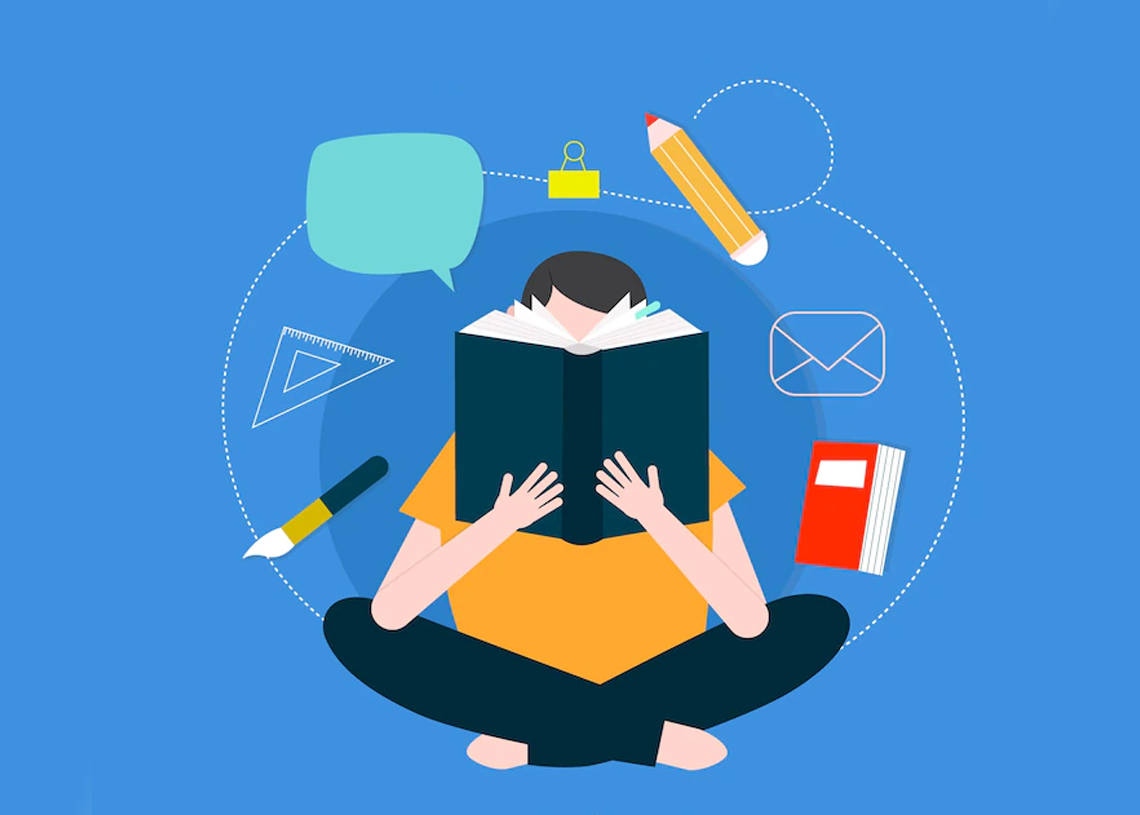Career Tips
Helpful Tips On How To Score High In Exams

Studying effectively is critical for academic achievement. However, students frequently fail to find the correct study habits that work for them, resulting in frustration and poor grades. It is critical to study intelligently rather than simply studying hard. This essay seeks to reveal three hidden study strategies that will help you become a class topper.
We will explore the difficulties students have when studying and offer practical strategies to overcome them. Implementing these three secret study strategies will help you achieve academic success and score the highest on examinations.
3 Important Tips for Effective Studying
Studying is more than just putting in long hours; it’s also about studying effectively. Effective studying entails remembering and understanding the material over time. We’ve shared three hidden study strategies that will help you excel. Let us delve deeply into them.
- Importance of Maintaining Focus
When studying, reduce multitasking and concentrate on one activity at a time. Multitasking can weaken focus and concentration, resulting in poor information retention. It is also important to turn off any notifications and devices that may distract you. According to research, simply having a phone or laptop could affect focus and concentration.
To stay focused, define precise study goals and schedule time to complete them. It’s also important to take regular pauses to refresh your thoughts and prevent burnout. Taking a short stroll or doing light physical activity will help you focus and concentrate. This is how you may concentrate on your schoolwork without being stressed.
One of the most difficult challenges students encounter while studying is remaining motivated. Long hours of studying can be unpleasant and demotivating, resulting in procrastination and loss of focus. Finding a study companion or joining a study group might help you stay motivated and focused. Studying with others might help you stay focused and accountable.
Another approach to keep focused is to reward yourself for completing a task. The incentive could be as simple as a snack or a break to watch your favorite show. Celebrating little accomplishments might help you stay motivated and make learning easier.
- Strategies for Overcoming Distractions and Concentrating on Studies
Distractions can take various forms, including social media, email, and domestic duties. If you’ve ever wondered how to get to the top of your class, here’s how.
To counteract these distractions, try the Pomodoro technique. This method entails dividing your study time into 25-minute portions, followed by a 5-minute break. After four 25-minute rounds, you will have a 15-20-minute rest. This strategy might help you focus on one activity at a time while avoiding distractions. This is how to study efficiently without spending hours attempting to memorize a page.
It is also crucial to create a distraction-free study atmosphere. Find a quiet, well-lit study space, and keep all of your study materials organized and easily accessible. This will lessen the amount of time you spend hunting for resources while also improving your focus and concentration.
- Not Procrastinating till the Last Moment
Procrastination is a typical concern for students. It can cause worry, anxiety, and poor performance. Start early and divide your duties into tiny portions to avoid procrastinating. This will help you better organize your time and reduce feelings of overwhelm.
To split down tasks, make a study schedule that lists the tasks you must complete for each subject. Assign explicit deadlines to each assignment and rank them according to their relevance. This will help you keep organized and prevent the last-minute hurry.
One of the most effective strategies to avoid procrastinating is to become interested in the subject. When you are interested in a subject, it is simpler to retain information. To create an interest in a subject, strive to comprehend the principles rather than simply remembering them. Ask questions, take part in class discussions, and try to apply the principles to real-world scenarios. This will help you gain a deeper understanding of the subject and learn how to study efficiently.
How to Study Like a Topper?
A methodical strategy to studying is required for effective learning. Here are various methods to implement our three secret study strategies that will help you become a top performer:
- Create a Schedule and Stick to It
Creating a schedule and sticking to it is a key strategy for effective studying. It helps you manage your time efficiently, maintain focus, and avoid procrastination. To create a study schedule, start by assessing the amount of time you have available each day or week. Then, allocate sufficient time for each subject based on the amount of material you need to cover and your level of understanding.
It is important to prioritize your tasks and set realistic deadlines to avoid last-minute cramming. For instance, if you have a test coming up, allocate more time to studying for that subject. Similarly, if you are struggling with a particular topic, allocate more time to studying that topic.
When setting deadlines, make sure they are realistic and achievable, considering your other commitments and responsibilities. In addition, make sure to include time for breaks in your schedule. Taking short breaks after long study sessions can help you recharge and regain focus. Similarly, engaging in leisure activities like exercising can help you relax.
- Find a Quiet, Distraction-free Study Environment
Choosing the correct study environment is an important component of the three secret study techniques for effective studying. Choose a quiet, well-lit study space. Make sure your study room is devoid of distractions such as noise, TV, and phones. To avoid distractions, consider using noise-cancelling headphones or earplugs.
- Take Short Breaks to Avoid Burnout
Regular breaks are crucial for good studying. Breaks allow you to recharge and recover focus. Take a 10-15 minute break after every 45-60 minutes of studying. You can use this time to stretch, go for a walk, or practice a hobby.
- Use active Studying Techniques, such as Summarizing, Creating Flashcards, and Practicing Problems
Active studying approaches boost your ability to remember information and understand the subject. Summarizing important material and generating flashcards are also essential. It is beneficial to test your memory, and completing practice problems can help you learn and recall important subjects.
- Review Notes Regularly and Don’t Cram Before Exams
Regularly reviewing your notes improves your memory and decreases exam anxiety. All topics must be reviewed on a regular basis, and cramming leads to poor information retention. To perform well on the exam, make sure to revise all topics thoroughly.
- Stay Organized and Keep Track of Deadlines and Assignments
Staying organized is an essential component of good studying. Use a planner or app to keep track of your projects, assignments, and deadlines. Being organized allows you to better manage your time and reduce stress.
- When necessary, ask teachers or tutors for assistance
Please do not hesitate to contact your teachers or tutors if you need assistance. They can answer your questions and provide important advice. You can also seek help from peers by participating in online forums or discussion groups.
- Stay Motivated and Believe in Your Ability to Succeed
Positive self-talk and imagery can help you gain confidence and motivation. Setting and meeting realistic goals is critical. Celebrate little accomplishments to stay motivated and focused.
- Set Specific Goals and Work towards Them
Setting concise and attainable goals might help you maintain focus and motivation. You can break down larger goals into smaller tasks and assign deadlines to each. This can help you reach your objectives and boost your academic achievement.
- Get Enough Sleep and Exercise to Stay Physically and Mentally Healthy
Taking care of your health is critical to academic performance. In this instance, a proper sleep cycle is deemed important. Exercise and adequate sleep can raise your energy levels and cognitive function. Get 7-8 hours of sleep every night and engage in physical activity for at least 30 minutes per day.
By implementing these study strategies into your everyday routine, you can establish excellent study habits that will aid in your academic performance. Remember that studying sensibly and successfully, rather than studying hard, is the key to being a high performer. That is how you become a topper!
- Unlock Academic Success
To summarize, becoming a topper needs not only intelligence but also a combination of hard effort, good study habits, and commitment.
Making and keeping to a schedule is an important method for effective studying. It helps you manage your time effectively, stay focused, and avoid procrastination. To construct a study timetable, first estimate how much time you have available each day or week. Then, plan enough time for each subject based on the amount of content to cover and your degree of comprehension.
By following these three secret study strategies, you can build excellent study habits that will help you succeed academically. These ideas address every facet of good studying, from making a timetable and locating a peaceful study space to remaining motivated and getting help when necessary.
Remember that studying sensibly and successfully, rather than studying hard, is the key to being a high performer. So, start adopting these strategies into your everyday practice and observe how it improves your academic performance. With devotion, determination, and discipline, you, too, may be a class topper. So what are you waiting for? Begin studying smartly today and become a topper!
FAQs
What are some tips for concentrating on your studies?
Tips for concentrating on studies:
- Find a quiet and comfortable study space.
- Remove distractions like phones or social media.
- Take breaks regularly to avoid burnout.
- Use techniques like the Pomodoro method to manage time effectively.
What are some effective studying techniques?
Effective studying techniques:
- Active recall and spaced repetition.
- Visualization and mind mapping.
- Summarizing and note-taking.
- Practice problems and quizzes to test understanding
What is the importance of setting clear goals in studying?
Setting study objectives is important. First, it directs and focuses effort. Second, it motivates by providing goals meaning and purpose. Third, it monitors progress and identifies areas that need further attention. Fourth, it helps you prioritize and manage your time. Finally, meeting specific goals over time can enhance confidence and self-esteem. Setting study goals is critical to achieving success and fulfilling one’s potential.
What are some tools and techniques for effective time management while studying?
Some tools and techniques for effective time management while studying are:
- Calendar: To keep track of your deadlines, appointments, and events.
- To-do list: To prioritize your tasks and check them off as you complete them.
- Timer: To set time limits for your tasks and take breaks in between.
- Planner: To organize your weekly and daily goals and activities.
- Tracker: To record how much time you spend on different tasks and activities
How can I maintain focus while studying?
Studies necessitate a focused environment. Find a distraction-free study area. Break into study periods and set goals. Take breaks to avoid mental tiredness. Focus by deep breathing, meditating, or picturing. Finally, get enough sleep, exercise, and eat a healthy diet to improve your mental and physical health and attentiveness.












